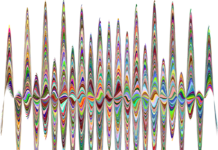Introduction to Ariboflavinosis
Ariboflavinosis is a condition resulting from a deficiency of riboflavin, also known as vitamin B2, in the body. Riboflavin is an essential water-soluble vitamin involved in various physiological processes, including energy production, metabolism, and cellular growth. The deficiency of riboflavin can lead to a range of symptoms affecting different systems of the body.
Causes of Ariboflavinosis
Ariboflavinosis commonly occurs due to inadequate dietary intake of riboflavin or poor absorption of the vitamin from the gastrointestinal tract. Factors contributing to riboflavin deficiency include poor diet lacking in riboflavin-rich foods, malabsorption syndromes like celiac disease or inflammatory bowel disease, chronic alcoholism, certain medications, and increased requirements during pregnancy, lactation, or strenuous physical activity.
Symptoms of Ariboflavinosis
Symptoms of ariboflavinosis may vary depending on the severity of the deficiency. Common symptoms include cracks and redness of the lips (angular stomatitis), sore throat, swelling of the mouth (glossitis), skin changes such as dryness and scaling, eye problems like itching and sensitivity to light, fatigue and weakness, mental confusion, anemia, and digestive disturbances like abdominal pain and diarrhea.
Diagnosis of Ariboflavinosis
Diagnosis of ariboflavinosis involves a clinical evaluation, dietary history assessment, and physical examination. Laboratory tests, including blood tests to measure riboflavin levels, urine tests to assess riboflavin excretion, and functional tests like erythrocyte glutathione reductase activity, may be conducted to confirm the diagnosis.
Treatment of Ariboflavinosis
Treatment of ariboflavinosis focuses on correcting the underlying riboflavin deficiency. This may involve dietary changes to include more riboflavin-rich foods, supplementation with riboflavin supplements, management of underlying conditions contributing to malabsorption, lifestyle modifications such as reducing alcohol consumption, and regular monitoring of riboflavin levels and clinical symptoms.
Prevention of Ariboflavinosis
Preventing ariboflavinosis involves maintaining a balanced diet rich in riboflavin-containing foods, being aware of dietary restrictions that may affect riboflavin intake, avoiding excessive alcohol consumption, managing underlying health conditions affecting nutrient absorption, and considering supplementation when necessary.
Importance of Riboflavin
Riboflavin is essential for various bodily functions, including energy metabolism, cell growth and repair, antioxidant defense, and maintenance of healthy skin, eyes, and nervous system. Adequate riboflavin intake is crucial for overall health and well-being.
Riboflavin Sources
Riboflavin is found in a variety of foods, including dairy products like milk, cheese, and yogurt, lean meats like chicken and fish, green leafy vegetables, eggs, nuts and seeds, fortified cereals, and whole grains like brown rice and whole wheat bread.
Riboflavin Deficiency Risk Factors
Several factors increase the risk of riboflavin deficiency, including poor dietary habits, malabsorption syndromes, chronic alcoholism, certain medications, increased physiological requirements during pregnancy or lactation, and strenuous physical activity.
Effects of Riboflavin Deficiency
Riboflavin deficiency can lead to a range of health problems, including fatigue, weakness, impaired growth and development in children, skin disorders, eye problems like cataracts, neurological symptoms, and anemia.
Ariboflavinosis, a term derived from “a” meaning absence or lack of, and “riboflavinosis,” refers to a clinical condition resulting from a deficiency of riboflavin, also known as vitamin B2, within the body. This deficiency, although less common than deficiencies of other vitamins like vitamin D or vitamin C, can have significant implications for overall health and well-being. Riboflavin is an essential water-soluble vitamin that plays a crucial role in various physiological processes, including energy production, metabolism, and cellular growth. Without an adequate supply of riboflavin, the body’s ability to perform these vital functions becomes compromised, leading to a range of symptoms and health complications.
Ariboflavinosis manifests when the body’s stores of riboflavin are insufficient to meet its metabolic demands. While riboflavin deficiency can occur in individuals of any age or gender, certain population groups may be at higher risk due to dietary habits, lifestyle factors, or underlying health conditions. The prevalence of ariboflavinosis varies globally, with regions experiencing food insecurity or limited access to nutrient-rich foods being particularly vulnerable. Understanding the causes, symptoms, diagnosis, and treatment of ariboflavinosis is essential for healthcare professionals and individuals alike, enabling timely intervention and preventive measures to mitigate its impact on public health.
Causes and Risk Factors of Ariboflavinosis
Ariboflavinosis can arise from a variety of factors that contribute to inadequate riboflavin intake, impaired absorption, or increased metabolic requirements. The primary cause of ariboflavinosis is insufficient dietary intake of riboflavin-rich foods. Riboflavin is found in a wide range of foods, including dairy products, lean meats, green leafy vegetables, eggs, nuts, and fortified cereals. However, individuals with poor dietary habits, such as those following restrictive diets or relying heavily on processed foods, may not consume enough riboflavin to meet their daily requirements.
Malabsorption syndromes represent another common cause of ariboflavinosis. Conditions that affect nutrient absorption in the gastrointestinal tract, such as celiac disease, inflammatory bowel disease, or chronic diarrhea, can impair the body’s ability to absorb riboflavin effectively. Similarly, individuals who have undergone gastric bypass surgery or other gastrointestinal surgeries may experience difficulties absorbing nutrients, including riboflavin, leading to deficiency over time.
Chronic alcoholism is also associated with an increased risk of ariboflavinosis. Alcohol interferes with the absorption and utilization of riboflavin in the body, as well as other B vitamins, by disrupting normal gastrointestinal function and impairing liver metabolism. Individuals who consume excessive amounts of alcohol may therefore be prone to riboflavin deficiency, along with other nutrient deficiencies, contributing to a range of health problems.
Certain medications can also impact riboflavin status, either by interfering with its absorption or increasing its excretion from the body. Examples include tricyclic antidepressants, phenothiazines, oral contraceptives, and some antiretroviral drugs used in the treatment of HIV/AIDS. Individuals taking these medications on a long-term basis may require monitoring of their riboflavin status and supplementation if deficiency is detected.
Increased physiological requirements for riboflavin can occur during certain life stages or circumstances, such as pregnancy, lactation, or strenuous physical activity. Pregnant and breastfeeding women have higher riboflavin needs to support fetal development and milk production, respectively. Similarly, athletes and individuals engaged in intense physical training may require additional riboflavin to support energy metabolism and tissue repair. Failure to meet these increased requirements through diet or supplementation can result in riboflavin deficiency over time.
Conclusion
In conclusion, ariboflavinosis is a condition resulting from a deficiency of riboflavin in the body, leading to various symptoms affecting different systems. Understanding the causes, symptoms, diagnosis, treatment, and prevention of ariboflavinosis is crucial for maintaining optimal health and well-being. Ensuring an adequate intake of riboflavin-rich foods, addressing underlying health conditions, and seeking appropriate medical guidance can help prevent and manage riboflavin deficiency effectively.






















